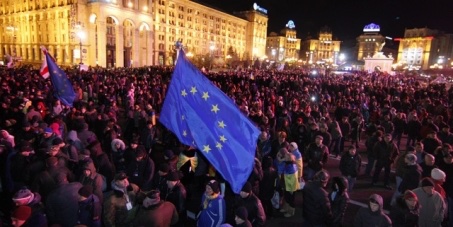Rumours about Trump being a Russian agent may be exaggerated. It is a fact though that the Russian propaganda perceived him as a potential ally. Consider this patriotic song. On 0:25 you can hear laments about the "President beyond the ocean [Trump] being stripped of his power"
https://twitter.com/JuliaDavisNews/status/1545161423583690755
That's song "Uncle Vova [Putin], we're with you" released in November 2017, just ten months after Trump's inauguration. Therefore, laments about Trump being "stripped of his power" refer to the constitutional checks on his power rather than anything else
meduza.io/shapito/2017/1…
meduza.io/shapito/2017/1…
Within the official Russian discourse, President is perceived as a quasi monarchical figure and as the only source of legitimacy. He is casually referred to as "Sovereign". All the civil servants are Sovereign's men. All the federal or municipal budgets - the Sovereign's money 

Medals on the Trump's election produced in Zlatoust, Russia. Level of Trumpophilia in 2016-2017 Russia was insane. In mid 2016 one blogger joked that judging from the official TV propaganda, in November Trump gonna be elected as the President of Rusia 

What exactly should have happened with the Trump's elections? Some hoped for the Russian-US rapprochement. Others, for the US political system drifting towards Russia, evolving into yet another quasi monarchical order. Both were mistaken. Soon Russian loyalists were disappointed
Wild videos with the "Putin's squads" grannies beating Trump, capturing him, burning Trump's dummy, burying his portrait become more understandable if you consider that they were very emotionally invested in him from the beginning. That's why they were so much disappointed later
That makes sense in the context of Russian quasi monarchic political culture. As a quasi monarchy with all the federal or regional budget being the Sovereign's money, with all the civil servants being the Sovereign's men, Russia finds it easier to deal with other quasimonarchies 

Claims about a supposed "coup" in Kyiv, 2014 should be viewed in this context. President Yanukovich was impeached by his own parliament, according to the written law. But from the Russian perspective they broke a more important unwritten law. You can't impeach your President 

From the perspective of the written law, President is a public servant, who can be questioned, protested against or impeached. But according to the informal, unwritten Russian law, President is the Sovereign. He is the sole source of power and legitimacy in the country 

From the perspective of Kremlin however, Parliament ousting Yanukovich was illegitimate (despite being legal). People rebelled against their Sovereign. The mutiny must be crushed so that neither Ukrainians or Russians would ever think of rebelling against their Sovereign. The end 

• • •
Missing some Tweet in this thread? You can try to
force a refresh






